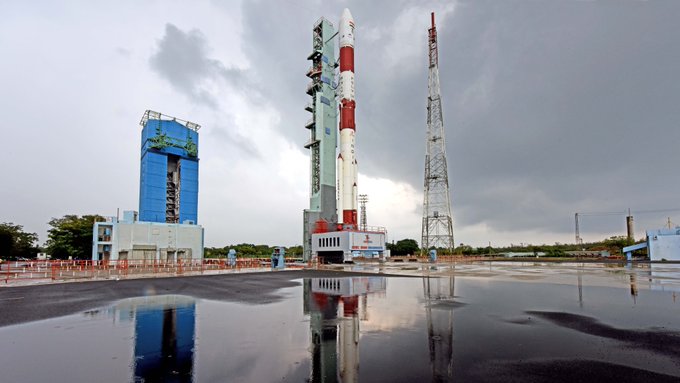
ISRO's first launch since COVID carries earth observation, 9 foreign satellites
The Indian Space Research Organisation (ISRO) launched its first satellite since the lockdown, named Earth Observation Satellite (EOS-01), on board the PSLV-C49 launch vehicle from the Satish Dhawan Space Centre in Sriharikota (Andhra Pradesh) on Saturday evening.

The Indian Space Research Organisation (ISRO) launched its first satellite since the COVID-19 lockdown. The Earth Observation Satellite (EOS-01), on board the PSLV-C49, was launched from the Satish Dhawan Space Centre in Sriharikota (Andhra Pradesh) Saturday evening.
The PSLV-C49 launch vehicle has nine more satellites from other countries. The launch took place at 3.12 pm on Saturday after a 10-minute delay due to debris in the flight path, ISRO sources told PTI.
At 3.28 pm, ISRO tweeted that the satellite had successfully separated from the fourth stage of the PSLV (Polar Satellite Launch Vehicle – the workhorse of India’s programme that has now completed its 51st launch) and been injected into orbit around the planet.
Also read: Space reforms doesn’t mean privatisation of ISRO: Sivan
Benefits of EOS-01
ISRO says the Earth Observation Satellite (EOS-01) will assist in supporting agriculture, forestry and disaster management planning.
The customer satellites, which have been launched under a commercial agreement with NewIndia Space Limited (NSIL), include four from the US that are meant for “multi-mission remote sensing”.
Four of the remaining five are from Luxembourg (for maritime applications) and the other is from Lithuania (for technology demonstration).
This is the national space agency’s first launch since a nationwide coronavirus lockdown was initiated by Prime Minister Narendra Modi on March 23.
Prime Minister Narendra Modi congratulated ISRO on the successful launch and praised its scientists saying they had overcome big challenges caused by COVID to ensure they met the deadline.
“I congratulate @isro and India’s space industry for the successful launch of PSLV-C49/EOS-01 Mission today. In the time of COVID-19, our scientists overcame many constraints to meet the deadline,” he said in a tweet.
“Nine satellites, four each from the US and Luxembourg and one from Lithuania, have also been launched in the Mission,” he said.

